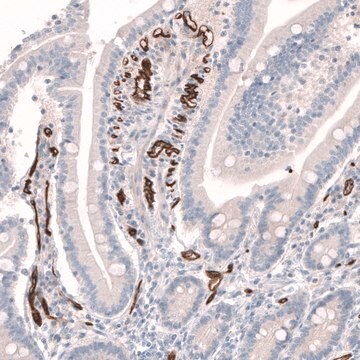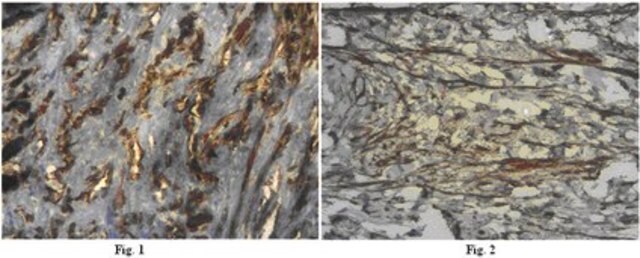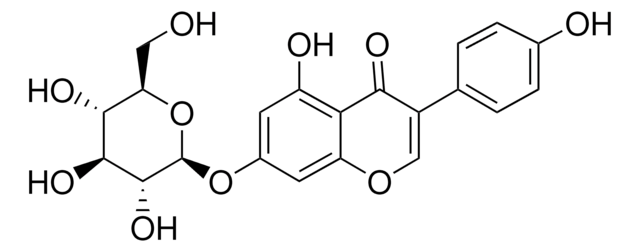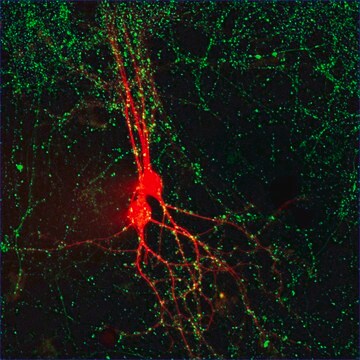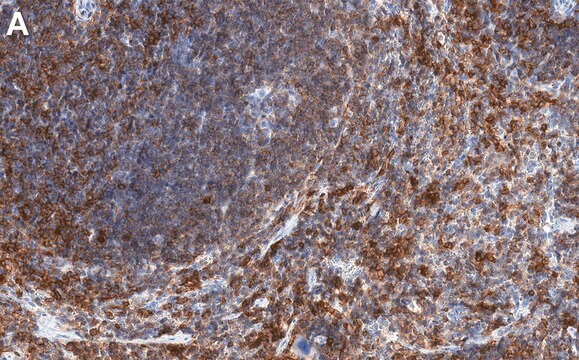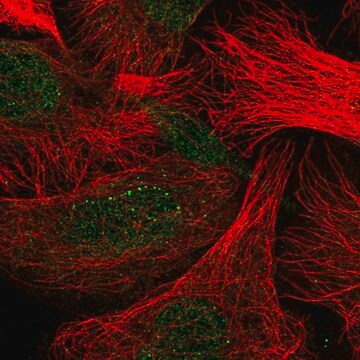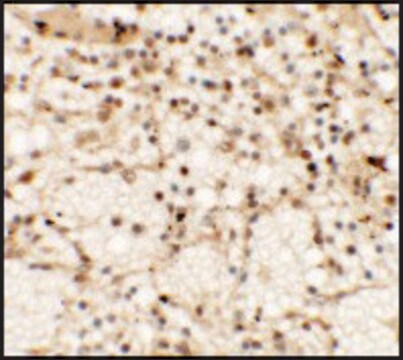MAB1954
Przeciwciało anty-Integryna α4, klon P4G9
ascites fluid, clone P4G9, Chemicon®
Synonim(y):
CD49d
About This Item
Polecane produkty
pochodzenie biologiczne
mouse
Poziom jakości
forma przeciwciała
ascites fluid
rodzaj przeciwciała
primary antibodies
klon
P4G9, monoclonal
reaktywność gatunkowa
human
producent / nazwa handlowa
Chemicon®
metody
immunohistochemistry: suitable
izotyp
IgG2bκ
numer dostępu NCBI
numer dostępu UniProt
Warunki transportu
dry ice
docelowa modyfikacja potranslacyjna
unmodified
informacje o genach
human ... ITGA4(3676)
Specyficzność
Zastosowanie
Hamuje przyłączanie komórek hematopoezy i fibroblastów do fibronektyny (uwaga: azydek sodu należy usunąć przed testem przyłączania).
Optymalne rozcieńczenia robocze muszą być określone przez użytkownika końcowego.
Cell Structure
Integrins
Powiązanie
Przechowywanie i stabilność
Informacje prawne
Oświadczenie o zrzeczeniu się odpowiedzialności
Nie możesz znaleźć właściwego produktu?
Wypróbuj nasz Narzędzie selektora produktów.
Kod klasy składowania
10 - Combustible liquids
Klasa zagrożenia wodnego (WGK)
WGK 1
Temperatura zapłonu (°F)
Not applicable
Temperatura zapłonu (°C)
Not applicable
Certyfikaty analizy (CoA)
Poszukaj Certyfikaty analizy (CoA), wpisując numer partii/serii produktów. Numery serii i partii można znaleźć na etykiecie produktu po słowach „seria” lub „partia”.
Masz już ten produkt?
Dokumenty związane z niedawno zakupionymi produktami zostały zamieszczone w Bibliotece dokumentów.
Nasz zespół naukowców ma doświadczenie we wszystkich obszarach badań, w tym w naukach przyrodniczych, materiałoznawstwie, syntezie chemicznej, chromatografii, analityce i wielu innych dziedzinach.
Skontaktuj się z zespołem ds. pomocy technicznej